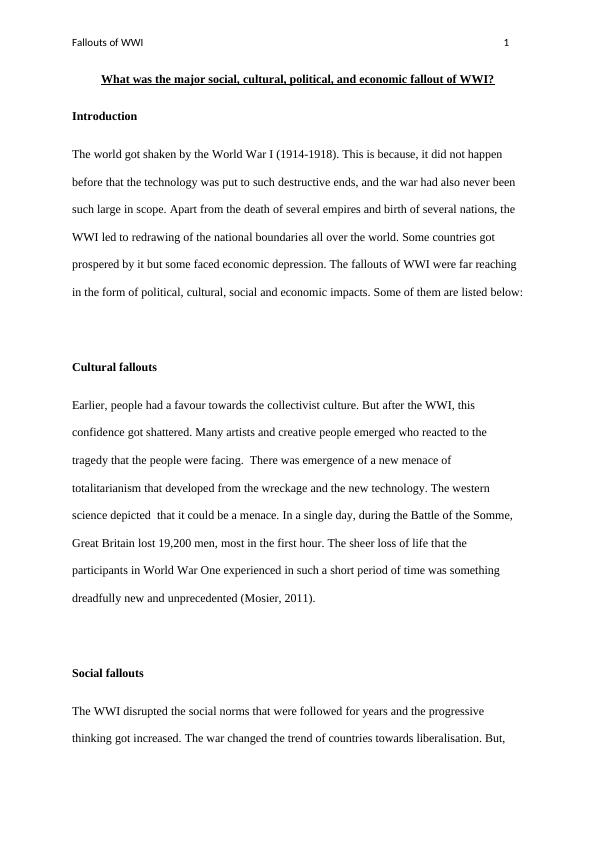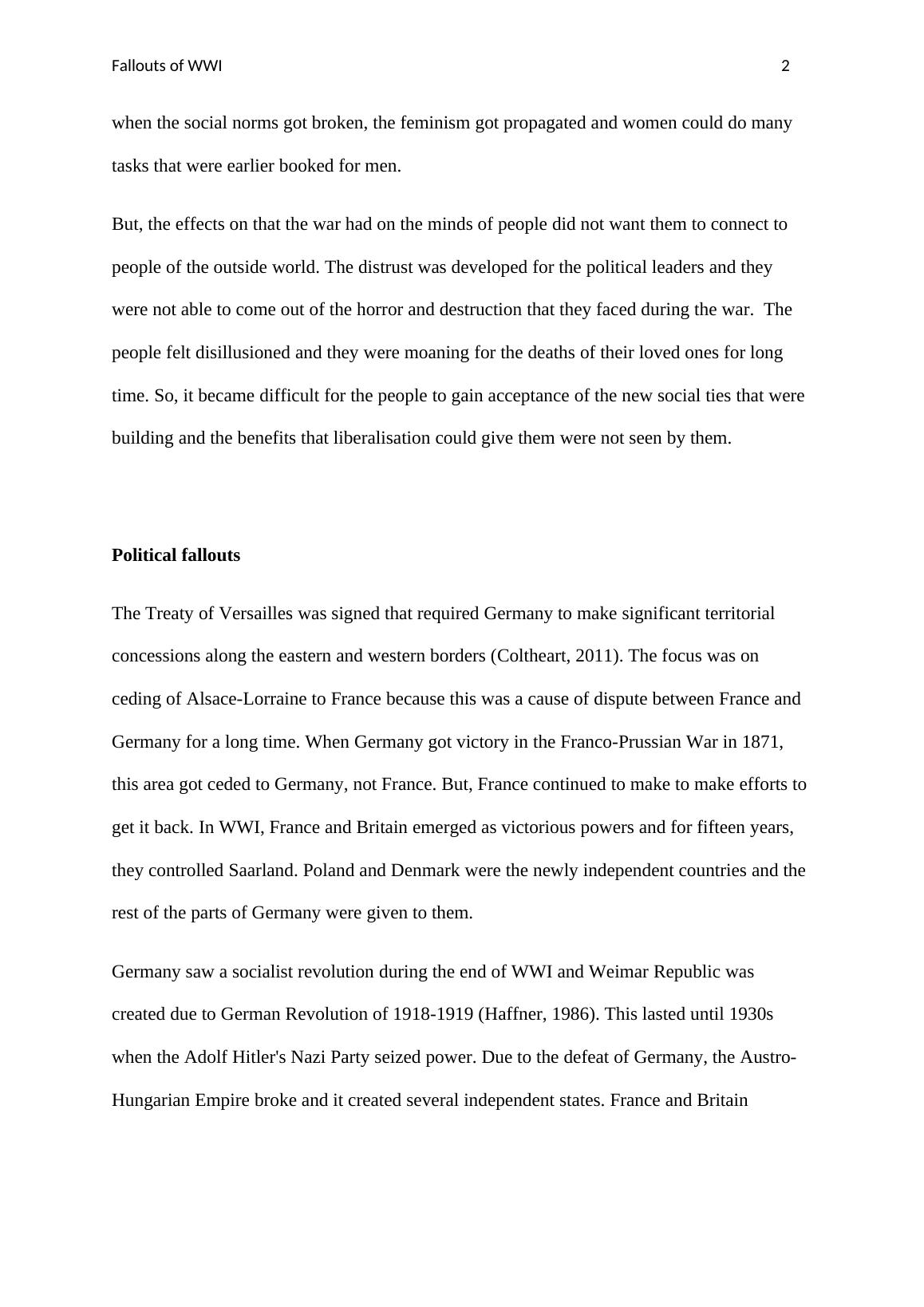Ask a question from expert
Introduction to World War I (1914-1918)
5 Pages940 Words501 Views
Added on 2019-09-16
Introduction to World War I (1914-1918)
Added on 2019-09-16
BookmarkShareRelated Documents
End of preview
Want to access all the pages? Upload your documents or become a member.
French, American and Haitian Revolution Assignment
|4
|958
|391
The Cold War Between Britain, France and Russia
|4
|609
|205
History - The first world war in Europe
|14
|3739
|20
COLD WAR COLD WAR Name of the Student Name of the University
|4
|482
|316
ASSIGNMENT ON EUROPEAN NATIONALISM.
|4
|606
|87
Comparison of Cultural, Physical, and Social Features of France and Thailand
|19
|1198
|470

